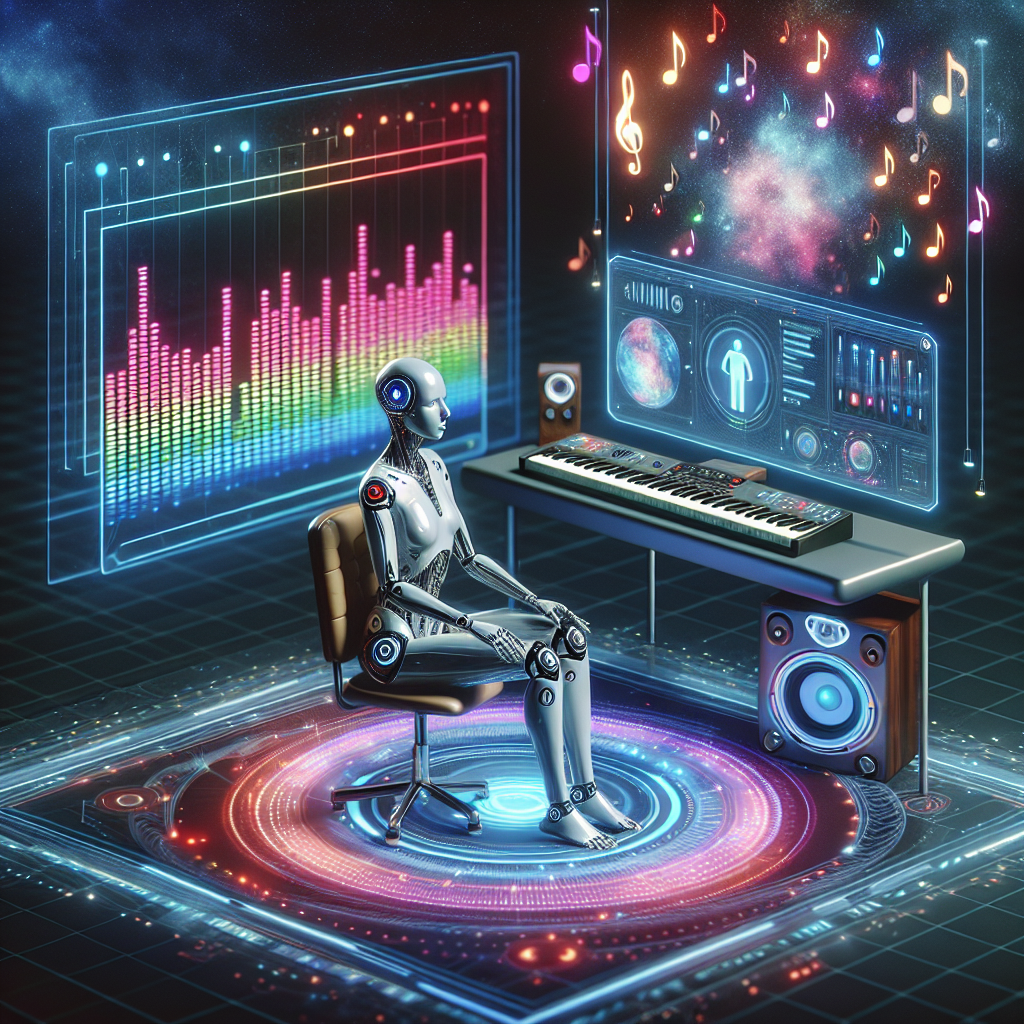The music industry, a vast arena rich with creativity and emotional depth, is experiencing a groundbreaking shift largely due to advancements in artificial intelligence (AI). As technology progresses, it transforms how music is composed, shared, enjoyed, and even verified. This article delves into the multifaceted role of AI in redefining the music industry’s landscape.
Music Creation
AI’s most notable impact can be seen in music creation. Algorithms powered by AI can process extensive music datasets, learning various patterns, styles, and structures. Tools like OpenAI’s MuseNet and Google’s Magenta enable composers and artists to craft original pieces or emulate the styles of their preferred musicians. These AI systems can propose chord progressions, melodies, and harmonies, acting as sources of inspiration for creators.
For example, artists can provide a few initial notes or specify a genre, and the AI will generate a complete composition. This not only enriches the creative journey but also democratizes music production, allowing those with little formal training to produce professional-quality tracks. The frontiers of artistic expression are expanding, fostering unique collaborations between human ingenuity and machine learning.
Personalization and Recommendations
After a track is completed, AI plays a vital role in personalization and recommendations. Streaming platforms like Spotify and Apple Music utilize advanced algorithms to analyze user listening patterns and preferences. By assessing factors such as play counts, skips, and search history, AI curates playlists tailored to individual tastes.
These customized recommendations enhance user experiences and assist emerging artists in reaching audiences who might not otherwise discover their music. The music discovery journey has evolved from passive listening to an engaging and interactive experience, where algorithms can unveil hidden gems and facilitate organic growth of fanbases.
Music Production and Mixing
AI is also transforming the music production landscape. Innovative tools support producers in tasks like mixing and mastering tracks. AI-driven software can automatically adjust sound levels, equalization, and compression, significantly decreasing the time dedicated to the technicalities of production. This heightened efficiency allows producers and artists to concentrate more on creative aspects—like songwriting and arrangements—rather than the technical nuances of sound engineering.
Additionally, AI-based tools assist in sound design, creating unique audio samples that traditional methods might not achieve. Artists can merge genres and experiment with sounds in groundbreaking ways, leading to new musical styles and experiences.
Marketing and Distribution
The distribution of music has also been reshaped by AI, especially in marketing strategies. AI tools analyze trends and consumer behaviors, yielding insights on effective audience targeting. This data-driven methodology allows artists and labels to enhance marketing campaigns and make informed choices about tour arrangements, merchandise sales, and music launches.
Furthermore, AI can streamline social media management and fan engagement. By using chatbots and virtual assistants, artists can maintain ongoing communication with their audience, fostering deeper connections without the constant need for personal interaction.
Music Rights and Ownership
As the music industry evolves, managing copyrights and royalties presents new challenges. AI is being employed to address these complexities by identifying songs across platforms, ensuring creators receive fair compensation. Software systems can track music usage across various media, monitoring performance to guarantee equitable royalty distribution, thus protecting artists’ rights in the digital streaming age.
Ethical Considerations
However, the rise of AI in the music sector raises ethical concerns that demand attention. Questions surrounding authorship, originality, and the potential loss of human essence in music creation are significant. As AI-generated content becomes increasingly common, inquiries arise: Who receives credit for a song co-created with AI? Can machines genuinely comprehend and express human emotions through music?
Addressing these concerns is imperative to uphold the integrity of the creative process. Industry stakeholders—including artists, technologists, and ethicists—must engage in ongoing discussions to establish frameworks that ensure fairness and respect for intellectual property.
The Future of Music
Looking ahead, it’s evident that AI’s role in the music industry is just beginning. The technology holds promise to enhance creativity, streamline production, and foster innovative ways for artists to connect with their audiences. However, striking a balance between utilizing AI and preserving the artistry and emotional richness of music will be essential.
In conclusion, as we tune into the future of music, we see a landscape where AI acts as both a tool and collaborator. With innovation steering change, the interdependent relationship between human creativity and artificial intelligence will continue to develop, paving the way for a new era of musical exploration and expression. The possibilities are boundless, and the soundtrack of tomorrow is waiting to be composed.

